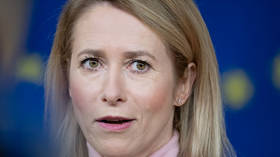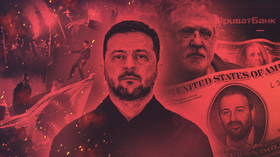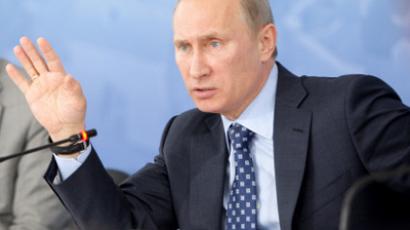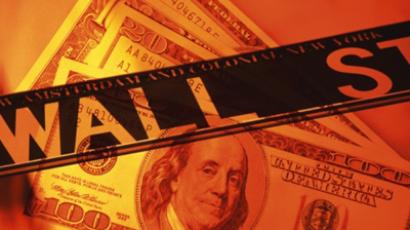'Modern capitalism has reached the end of its rope’
There is barely a corner of the globe that has not been touched by the current financial meltdown. But a senior sociology scholar at Yale University thinks the crisis is far wider than the economic crash - it is capitalism itself which is collapsing.
Immanuel Wallerstein explained his theory to RT. “Modern capitalism has reached the end of its rope. It cannot survive as a system,” Wallerstein said. “And what we are seeing is the structural crisis of the system. The structural crisis goes on for a long time. It really started more or less in the 1970s and will go on for another 20, 30, 40 years. It is not a crisis of a year or of a short moment, it is the major structural unfolding of a system. And we are in transition to another system and, in fact, the real political struggle that is going on in the world that most people refuse to recognize is not about capitalism – should we have or should we not have it – but about what should replace it.”Immanuel Wallerstein also explained there are two different views on what should replace capitalism. “I would like a more relatively democratic, more relatively egalitarian world – that is one view,” he said. “We never had that in the history of the world, but it is possible. The other view is that you have a very unequal, polarizing, exploitative system. It does not have to be capitalism. Capitalism is that. But you can do that in many other ways, some of which may be far worse than capitalism.”And he shared with RT what he thinks of the political struggle unfolding around the world. “It is technically called a bifurcation of a system,” he said. “Its roots are in many ways the impossibility of continuing the basic principle of capitalism which is seized as the accumulation of capital. And that’s the whole point of capitalism as a system. And it has worked in some ways marvelously well for 500 years. It has been an extremely successful system in what it was trying to do but it has undone itself as all systems do".“What happens in a bifurcation is that at some point, the thing tilts and we get into a new, relatively stable situation – the crisis is over, we are in a new system."“I sometimes say this is the historicization of the old Greek philosophical distinction between determinism and free will,” he went on. “When the system is relatively stable, it is relatively determined as a system in which we have relatively limited free play. But when it is unstable, when it is going into structural crisis, free will comes into the picture. That is to say, our actions really matter in a way that they did not for 500 years."“And it is extremely dangerous. It is a system in which everything is relatively unpredictable in the short-term. People cannot live with unpredictability in the short run,” he stated. “We can live with unpredictability in the long run – we can adjust to that. But if you don’t know what is going to happen the next day or the next year, then you don’t know what to do. And you get paralyzed. And this is basically what we are seeing in the world economy right now – it’s a paralysis. Nobody is investing because they are not sure that three years from now, they are going to get their money back. And if you don’t invest – you make the situation even worse. But people don’t feel they have much choice. The options are few.”














